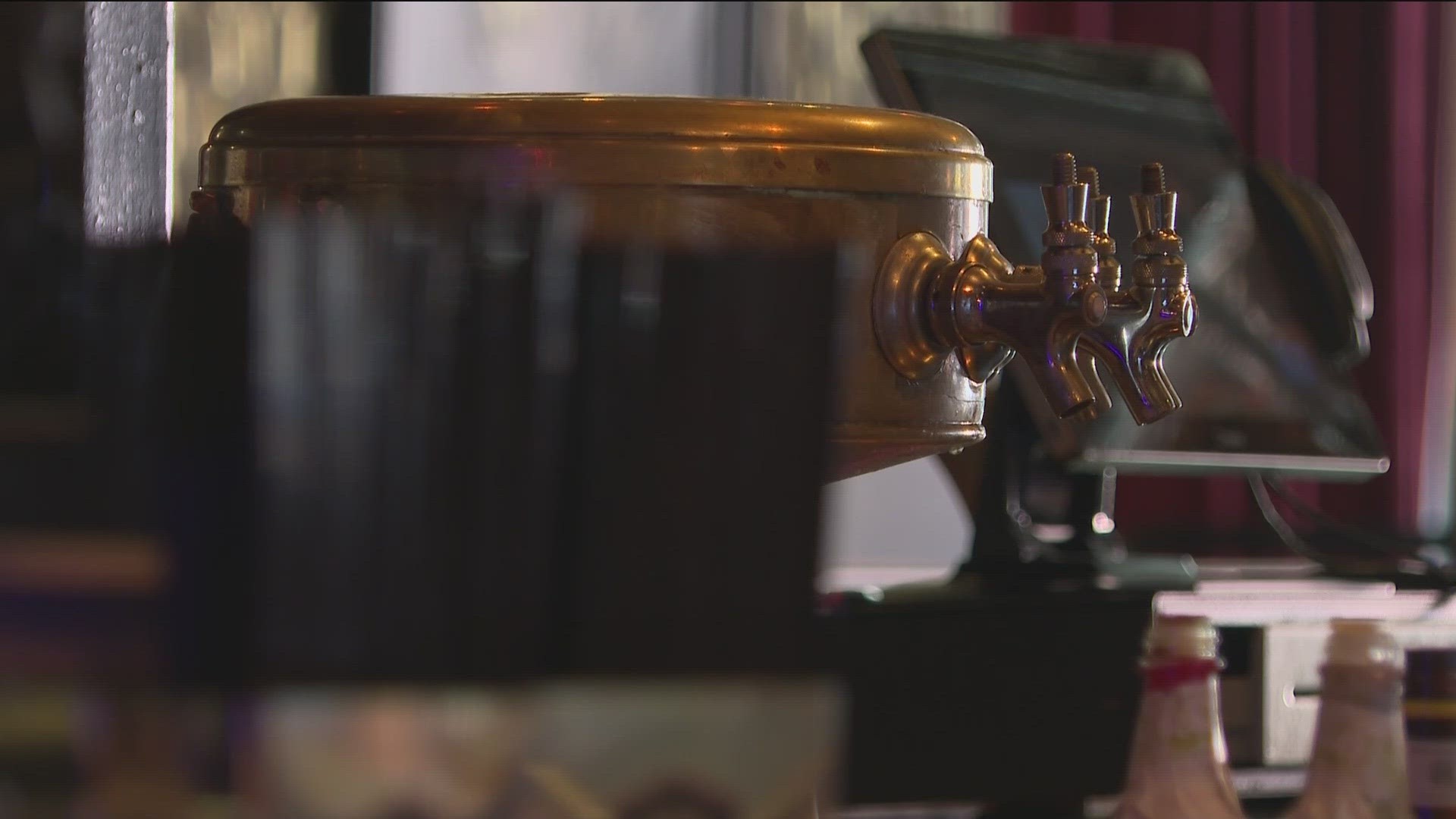BOISE, Idaho — Anyone looking to grab a green beer to celebrate St. Patrick's Day in downtown Boise may have to try a few bars.
Ted Challenger owns Dirty Little Roddy's, New Amsterdam, Strange Love, and Club Karma - all staples in the city’s nightlife. However, Challenger shut off the beer taps at four venues in response to Senate Bill 1120.
"We will not sell beer," Challenger said. "It's getting more and more complicated to make a profit here. Just the way they're presenting bills legislating against our liquor licenses."
SB1120 restricts people from selling liquor license that are administered by the state after July 1, 2023. Licenses before that date can still be sold one last time. A license can also be given to family or left in a will - that does not count as a transfer or sale.
These exemptions exist to allow current license holders a chance to receive back the funds they already invested into the license, bill sponsor Sen. Jim Guthrie (R-McCammon) told KTVB.
"I just bought one for [Club Karma] a year ago, and I paid $350,000," Challenger said.
Under current Idaho law, each city has two liquor licenses, plus an additional license per 1,500 residents. The waitlist to receive a license from the state is long, according to Challenger. Some people wait a decade before they reach the front of the line.
The state runs a quota system to comply with Article III Section XXIV of the Idaho State Constitution, which states lawmakers should "further all wise and well directed efforts for the promotion of temperance."
Liquor licenses were not supposed to be transferable property in the first place, according to Sen. Guthrie. By stopping private sales, people waiting in line just to resell a license for profit - who otherwise have no interest using the license to run a business - will step aside clear the way for serious business inquiries.
People who receive a new license form the state first make a substantial investment, Emmett's Huck-n-Finns Sports Bistro Owner Jefferson Jenkins wrote KTVB in an email. A liquor license is not eligible for an instant transfer or sale to combat this exact situation.
An application for an alcohol license includes a copy of the lease agreement or proof of ownership where this alcohol would be served under said license. The applicant must also supply financial statements of the business and the business registration with the Idaho State Secretary of State's office.
People waiting just to profit off the license is a problem, according to Moscow Corner Club Owner Marc Trivelpiece. However, the bill also limits how a license owner can lease the license to another person.
Leasing licenses has long been a common strategy for a young aspiring club owner to phase into the industry without having to wait a decade for a license.
"I feel like there was some backdoor dealing in this," Trivelpiece said.
Idaho Beer & Wine Distributor Association Executive Director Jeremy Pisca is a lobbyist promoting SB1120, according to documents from the Idaho Secretary of State's office. He also lobbied on behalf of a similar bill during the 2022 legislative session.
"It's to limit liquor so beer sales capture more of the market," Challenger said. "I am dropping my prices on liquor to match beer. I'm gonna work toward pushing more people toward liquor and pricing beer out."
Pisca and his association have remained neutral on the bill, according to Sen. Guthrie. However, both Challenger and Trivelpiece told KTVB other suggestions to solve the problem - such as increasing the number of licenses available to balance supply and demand - were rejected.
Challenger planned to lease his licenses to local bar tenders in a long-term deal so they could own his businesses someday. If SB1120 were to become law, Challenger would then sell his license to the highest bidder once he wants to leave the industry.
"We need to make our money getting out," Challenger said. "We need to sell to the highest bidder who ends up being a large corporation."
SB1120 passed the Senate and remains on the House floor. If the bill were to pass the House, SB1120 would go to Gov. Brad Little's desk for his final decision on whether it should become law.
Watch more Idaho politics:
See all of our latest political coverage in our YouTube playlist:

